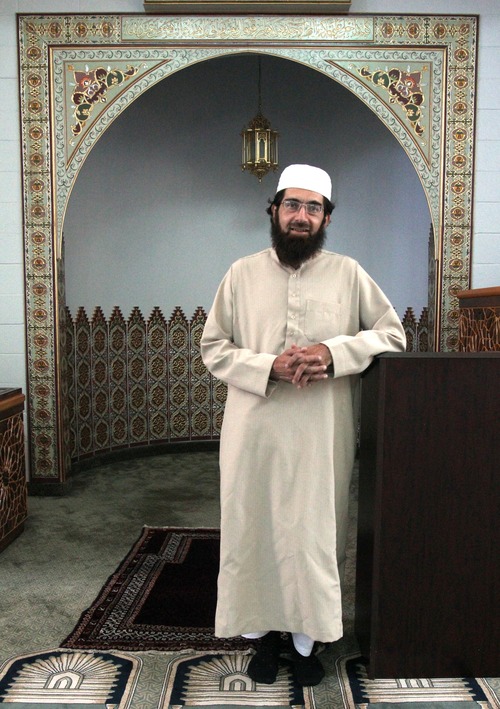This is an archived article that was published on sltrib.com in 2013, and information in the article may be outdated. It is provided only for personal research purposes and may not be reprinted.
If Boston bombing suspects Tamerlan and Dzhokhar Tsarnaev were motivated by "extremist Islamic beliefs," as some assert, theirs was a "perverted" image of the faith, insist Utah Muslim clerics.
"I don't know where they get their version of Islam; it's absurd to us," Imam Shuaib Uddin, leader of the Utah Islamic Center in Sandy, said Tuesday. "It doesn't even make sense to me."
The Quran, Islam's holy book, spells out "rules of engagement" during war, Uddin said, but targeting civilians is never OK — not even in battles between countries or armies.
"There is no justification for that whatsoever," the imam, or mosque leader, said.
Utah's Muslim community has strongly condemned the Boston attack.
"We stand shoulder to shoulder with our fellow American citizens and pray that the culprits are brought to justice," reads a statement posted on the Utah Islamic Center's website after the bombings.
Until a few years ago, the Tsarnaev brothers apparently were Muslims but not devout adherents. Then Tamerlan, the older, 26-year-old brother who died Friday in a shootout with police, began to pray five times a day, forgo alcohol and attend services at a Boston area mosque. On one occasion, news accounts say, he got angry when the imam compared civil-rights legend Martin Luther King Jr., a Christian minister,to theIslamic Prophet Muhammad. Tamerlan reportedly was ejected from the service.
"To me, [the sermon] shows how open-minded the imam was," Uddin said. "Tamerlan was not in the mainstream of Muslims. He was on the fringe of his own congregation."
There is no Islamic point of view — orthodox or liberal — that would justify killing spectators or runners at an athletic event, said Imam Muhammed Mehtar, of the Khadeeja Islamic Center in West Valley City. "This act is not even remotely appropriate."
Even Muslims in disputed Chechnya, the suspects' ancestral home in Russia's North Caucasus, do not favor violence against civilians, according to a 2012 Pew survey.
"More than eight in 10 Russian Muslims (86 percent) say acts of violence that target innocent civilians are never justified as a means of defending Islam against its enemies. Among Muslims in Russia's North Caucasus, upwards of nine in 10 (93 percent) think such acts of violence are never justified," the survey found. "In Central Asia, violence against civilians also is widely rejected. Most Muslims in Kazakhstan (93 percent) and Kyrgyzstan (66 percent) say suicide bombing and similar forms of violence are never justified."
In fact, many North American Muslims are cooperating with their governments to thwart terrorism. A Toronto imam, according to The Globe and Mail, tipped off the police about a plot to derail a passenger train going to New York.
"The imam alerted authorities more than a year ago about a person he regarded as an extremist who was corrupting youth in his community," the newspaper reported. "That single tip led to what the [Royal Canadian Mounted Police] on Monday called the first-ever Canadian bust of an alleged al-Qaida terrorist plot."
Mehtar said he would not hesitate to inform government officials about a Muslim who was making threats against the United States.
"It is our duty and obligation to call authorities when we notice things," the imam said, acknowledging that he has done so "from time to time."
He and others in hiscommunity make those calls, Mehtar said, "not just asMuslims but as American citizens with a responsibility to assist in whatever capacity we can, to ensure that such actions do not take place."
American Muslims are becoming "more active regarding national security," he said, "so these things can be uprooted."
Mehtar's Islamic Society of Greater Salt Lake — on its website — urged "politicians, media pundits, and the public to refrain from making gross generalizations of any group, religious or otherwise, based on the actions of some of its members."
Utah Muslim Reaz Ahmed Chaudhuri agrees that the marathon bombings had nothing to do with Islamic belief.
"Some people with Christian names do bad things," Chaudhuri said, even while claiming "they love Jesus."



